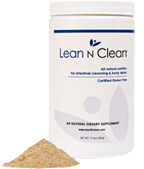Nutrient Deficiency
Why Are Vitamins And Minerals Recommended?
Do you know if you are suffering from nutrient deficiency of vitamins minerals ? How do you know if you have enough vitamins and minerals to give you a healthy body? Unfortunately, most people do not have the answers.
Vitamins are unique organic substances necessary for life. They are neither carbohydrate, nor protein nor fat. Vitamins are essential players in the biochemical reactions responsible for our growth, repair, energy production, vitality, and general wellbeing. However, they cannot be synthesized by our bodies. Vitamins are found in minute amounts in all natural foods. We must obtain vitamins from foods or from dietary supplements,
“Vitamins are neither pep pills nor substitutes for food. Anyone who has in the past eaten sugar, white flour, or canned food has some deficiency disease…” (Vitamin Bible by Earl Mindell)
Minerals are as important as vitamins. Vitamins cannot become part of the body and cannot function without minerals. They must work together. The body cannot manufacture a single mineral. We must obtain all minerals needed from outside sources. To put the importance of vitamins and minerals in perspective, let’s think about the construction of a new house. Carbohydrate, protein, fat, and water are comparable to the building materials. Vitamins and minerals are comparable to the architect, contractor and construction workers. Obviously, without the architect, contractor, and construction workers, it does not matter how much building material you have, the house will never be built. Similarly, without vitamins and minerals, our bodies cannot synthesize new cells, build new tissues and produce energy we need regardless how much carbohydrate, protein, fat and water we ingest everyday. Most people, especially people who have weight problems, do not eat a well-balanced diet. Despite excessive food intake, people who are overweight are usually nutritionally deficient. Studies have shown that people who are nutritionally sufficient tend to crave less food or alcohol.
After Breakfast Or Lunch: B complex-50 (folic acid 400 mcg + 50 mg of all B vitamins), 1 tablet daily Vitamin C with rose hips, 500 mg, 1 tablet of daily Multiple digestive enzymes, 1-2 tablets for people who have indigestion.
After Dinner: B complex-50 (folic acid 400 mcg + 50 mg of all B vitamins), 1 tablet daily Vitamin C with rose hips, 500 mg, 1 tablet of daily Multiple vitamins with minerals and trace elements Iron Free for post-menopausal women and men. (Post-menopausal women and men in general do not need iron supplementation.)
Between Meals On Empty Stomach: probiotics 1-2 capsules every other day or 2-3 times a week. During and after antibiotic therapy, 2-4 capsules daily for 2-3 weeks.
People With Special Needs In Vitamins Or Minerals:
Stress Headache: B complex-50, 1 tablet + Amino Acid chelated Magnesium 500mg, 1 tablet as needed.
B-12 Deficiency Anemia Or Poor Circulation:(with symptoms of numbness of extremities at night) and for menstruating women: B-12 sublingual tablet 1000 mg daily.
Vitamin B-12 is one of the basic ingredients needed in the production of red blood cells in our bodies. Red blood cells are responsible for bringing oxygen and other nutrients to our brain and all other tissues. Therefore, a person who is anemic due to Vitamin B-12 deficiency will suffer multiple health problems due to insufficient oxygen and micro-nutrient supplies. These problems include, but are not limited to memory loss, poor circulation leading to numbness of extremities (especially while sleeping), decreased organ functions leading to fatigue and inability to concentrate and menstrual problems for females.
Vitamin B-12 is the most poorly absorbed B vitamin. It’s absorption takes place almost entirely in the ileum, the distal part of small intestines. It’s absorption also depends on the presence of a gastric factor, called the “intrinsic factor.” As a person ages, the production of this intrinsic factor is greatly reduced. In addition, older people usually have “dirty” intestines. Therefore intestinal surface available for absorption is greatly reduced. Elderly people often require Vitamin B-12 shot to correct Vitamin B-12 deficiency. Recent studies show approximately 50% or more of the supplement you take orally pass through your digestive system unabsorbed. In case of B-12, the percentage is even higher.
Sublingual B-12 (No Shot B-12) tablets are manufactured without using binders and fillers found in most supplements. When placed under the tongue, it can be quickly and directly absorbed into the blood stream, bypassing digestion.
The natural sources of Vitamin B-12 are meats, eggs, milk and cheese. Vegetarians who exclude eggs and cheese from their diet are advised to take Vitamin B-12 as dietary supplement.
Pregnant Women Or Nursing Mothers: B12/B6/Folic Acid 800 mcg, sublingual tablet, or Methylcobalamin-Activated B12/B6/Folic Acid 800 mcg, sublingual tablet (with improved absorption), 1 tablet daily.
People Who Consume Alcoholic Beverages: Amino Acid chelated Magnesium 250 to 500 mg and Thiamine 100 mg daily.
Post-menopausal Women & People Concerned With Osteoporosis: Formula with calcium, protein, magnesium, phosphorus, vitamin D, and potassium, daily.
Post-menopausal Women With Hot Flashes And Night Sweat: Formula with natural progesterone daily Natural pregesterone cream may also be used instead of oral progesterone.
Premenstrual Symptoms: Formula with Magnesium & Vitamin D daily with meals one week before menstruation.
Weak Immune System (People who acquire infections easily): Immune Support formula. examples of nutrients that have been identified as critical for the growth and function of immune cells include vitamin C, vitamin D, zinc, selenium, iron, and protein (including the amino acid glutamine). They are found in a variety of plant and animal foods. Take three times daily at meal time, especially important when traveling in common carriers, during cold seasons and around people with contagious diseases.
Joints With Arthritis And Damage To Cartilage: Joint Support formula with Glucosamine-Chondroitin Complex, MSM and more), with each meal.
Muscle Spasms/Leg Cramps: Amino Acid chelated Magnesium 500 mg at bedtime.
Impaired Brain Functions: Essential vitamins and minerals include:
- THIAMINE (B1)
- FOLIC ACID (B9)
- ASCORBIC ACID (VITAMIN C)
- CALCIUM
- MAGNESIUM
- ZINC
Impaired Vision: Essential vitamins and minerals include:
- Vitamin A.
- Vitamin E. …
- Vitamin C. …
- Vitamins B6, B9 and B12. …
- Riboflavin. …
- Niacin. …
- Lutein and Zeaxanthin. …
- Omega-3 Fatty Acids.
To Maintain Healthy Prostate Glands: zinc, Vitamin D, Vitamin E, Selenium.
For Irritated Or Sore Throat: Zinc Lozenges, dissolve one lozenge in the mouth 2 to 4 times daily or as needed.
For improved cellular respiration, especially in the Heart Muscle to reduce risk Of Heart Attack: CoEnzyme Q10, 30 mg to 100 mg, adults take 1 capsule 1-3 times daily with meals.
Insomnia: Melatonin 3 -10 mg sublingual tablet, place tablets under tongue 30 minutes before bedtime. To enhance the effect of Melatonin, take 1 tablet of Amino Acid chelated Magnesium 500 mg.

Products
Lean N Clean®
Digestive Issues
- Diverticulitis
- Crohn’s Disease
- Celiac Disease
- Irritable Bowel Syndrome (IBS)
- Constipation
- Hemorrhoids
- Acne Cure and Prevention
- Bad Breath Cure and Prevention
- How to Regulate Your Bowel
Cleansing Benefits
Digestive Health
Drug-induced Nutrient Depletion
This is one area that is being ignored or overlooked by most medical doctors whose arsenals for treating diseases are drugs and surgeries. Traditionally, doctors of western medicine receive very limited formal education in the subject of nutrition. Nutrients are also considered preventive rather than curative. History has demonstrated that it has taken decades to centuries for the human race to recognize that many diseases are caused by nutrient deficiencies. Some examples include: scurvy, which is caused by a deficiency of Vitamin C; beriberi is caused by a deficiency of Vitamin B1 (Thiamine); pellagra is caused by a deficiency of Vitamin B3 (Niacin) and rickets is caused by a deficiency of Vitamin D. Yet, in the last several decades, a disproportionately large amount of funding was poured into drug research in search of cures for diseases compared to the amount of money spent on research to find cures in nutrition. One of the obvious reasons is that pharmaceutical companies cannot patent naturally occurring ingredients in foods and therefore will not benefit from research in nutrition. We are still at the infancy stage of understanding nutrition since much knowledge of nutrition has yet to be discovered. Unfortunately, many drugs do not cure diseases; they only suppress the symptoms of diseases. In the United States, millions of people are taking medications that cause drug-induced nutrient depletion. Elderly people are in double jeopardy. Firstly, they do not take in adequate nutrients from foods due to decreased oral intake and absorptive power of their gastrointestinal tract. Secondly, they are usually prescribed multiple drugs, which can deplete the nutrients they have stored in their bodies and/or hinder their ability to assimilate new nutrients needed for optimal health.
| If you are taking the following drugs: | Increase intake of the following nutrients: |
| Magnesium/aluminium-containing antacids | Calcium and phosphorous |
| Antibiotics | Probiotics, vitamin B complex, vitamin K |
| Colchicine (for gout) | Vitamin B12, Beta-carotene, potassium, sodium |
| Isoniazid (INH) | Vitamin B3 (Niacin), B6 (pyridoxine), vitamin D |
| Phenytoin (Dilantin) | Vitamin B1, B12, D, K, biotin, folic acid, calcium |
| Glyburide (Diabeta, Micronase, Glynase) | Coenzyme Q10 |
| Salicylates (Aspirin & various products) | Vitamin C, folic acid, iron, potassium, sodium |
| Non-steroidal anti-inflammatory drugs (ibuprofen, naproxen and various products) | Folic acid |
| Steroids (prednisone, hydrocortisone, methylprednisolone, cortisone, dexamethasone & various products) | Vitamin C, D, folic acid, calcium, potassium, zinc, magnesium, selenium |
| Diuretics: furosemide (Lasix) bumetanide (Bumex) | Vitamin B1, B6, C, calcium, magnesium, potassium, zinc |
| Oral contraceptive (various products) | Vitamin B2, B6, B12, C, folic acid, zinc, magnesium |
| Hormone replacement (various products) | Vitamin B6, zinc, magnesium |
| Mineral oil (various products) | Vitamin A, Beta-Carotene, Vitamin E, D, K |
| Tricyclic anti-depressants (Elavil, Pamelor, Sinequan & various products) | Vitamin B2, Coenzyme Q10 |
| Ulcer medication (Tagamet, Zantac, Axid, Pepcid, Prevacid, Prilosec) | Vitamin B12, D, folic acid, calcium, iron, zinc, Vitamin B12 |
| Drugs for cholesterol: cholestyramine (Questran), colestipol (Colestid) | Vitamin A, E, D, K, Beta-Carotene, B12, folic acid, iron, calcium, magnesium, phosphorus, zinc |
| Drugs for cholesterol: “Statin” drugs (Lipitor, Mevacor, Lescol, Zocor, Prevachol, Baycol) | Coenzyme Q10 |
Nutrient Depletion & Cancer Chemotherapy
Agents used in cancer chemotherapy may have profound effects on an individual’s nutritional status. Oral intake may be decreased due to chemotherapy-induced nausea and vomiting, leading to decreased nutrient intake. Many chemotherapy drugs exert direct toxic effects on cells lining the gastrointestinal tract which can lead to diarrhea and the destruction of cells responsible for absorption of nutrients. Eating causes foods and digestive juices to come into contact with raw inflamed intestinal tissue, resulting in severe pain. Therefore, many patients reduce their food intake to avoid pain. As a result, nutrient depletion is extensive including vitamins, minerals, amino acids and fatty acids. Some chemotherapy agents can induce severe constipation and/or functional bowel obstruction due to neurotoxicity.
What Is RDA?
RDA or RDAs stands for Recommended Daily Allowances. The Food and Nutrition Board, a division of National Academy of Sciences, first published the RDAs in 1941. These values have been periodically revised and updated. Since their inception, the government and many health professionals have promoted the RDAs as nutrient guidelines that will meet the need of most healthy individuals. RDAs may be adequate to prevent outright nutrient diseases, such as scurvy, beriberi, and pellagra, but they are hardly adequate for people with special needs and definitely inadequate for optimal health.
- Visit www.acidgone.com to learn about our Acid Reflux/GERD/heartburn- product- Acidgone®
- Read About How You Can Avoid Being a Willing Medical Victim on willingmedicalvictims.org
- Are you an independent thinker? Share your important thoughts to benefit humanity on debateandshare.com

